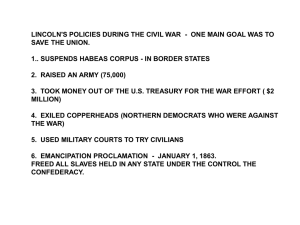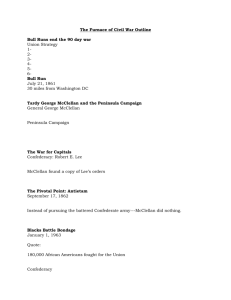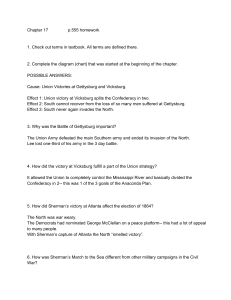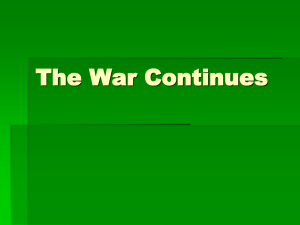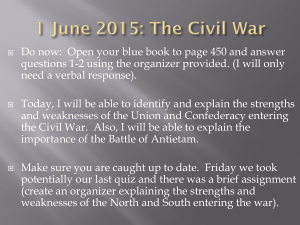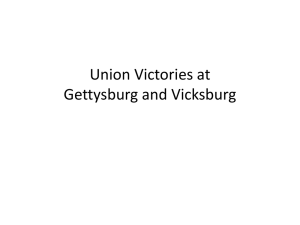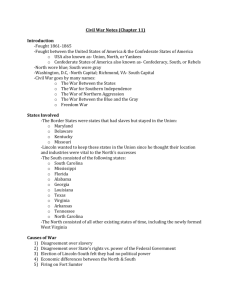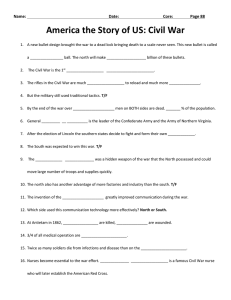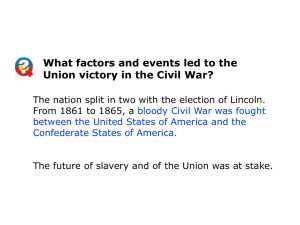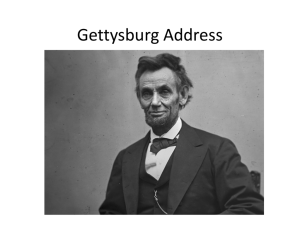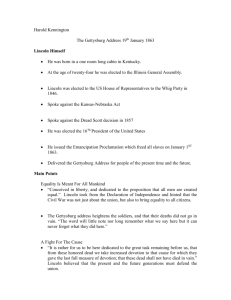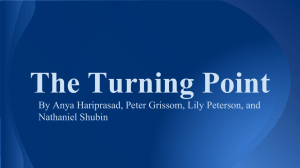The Civil War Power Point: 1863
advertisement
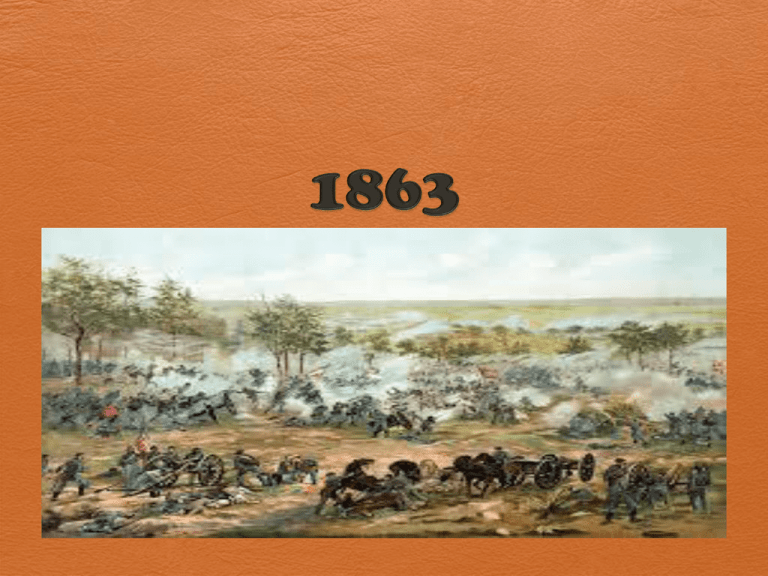
The Emancipation Proclamation Created by President Lincoln Following the Union Victory at Antietam. Frees the slaves living in “States in Rebellion” as of 1/1/1863. DOES NOT free slaves living in the Border States. Freeing the slaves prevents England from supporting the Confederacy. States Effected By Emancipation Copperheads (Peace Democrats) Northerners who were opposed to the war effort and against a war of Emancipation. Copperheads form an antiwar platform, and demand the Union settle the war with the Confederacy. Their leader is Clement C. Vallandingham, whom Lincoln had deported to the Confederacy. African American Troops Following the Battle of Antietam, Lincoln allows Free Blacks to enlist in the Union Army and Navy. These Men fought bravely in numerous battles, the most celebrated were the “Fighting 54th of MA” Confederates say black soldiers caught fighting for the Union will be executed. Leads to Massacre at Fort Pillow on 4/12/1864 Lee’s Victory at Chancellorsville May 1st-4th 1863, Lee defeats the Union Commander, “Fighting Joe” Hooker. Hooker loses 17,287 men out of 75,000. Lee loses his best General when “Stonewall” Jackson is accidently shot by his own man. The Battle of Gettysburg Fought from July 1st-3rd, 1863. Union Commander: General Meade Confederate Commander: General Lee Lee’s last ditch effort to invade the North, attacking in Gettysburg, PA, to capture badly needed supplies such as shoes. Considered the “TURNING POINT” of war, Lee lost ½ of his army, 28,000 men. The Union lost 23,000 men Grant’s Victory at Vicksburg Grant captures Vicksburg, which is the “nail that holds the two halves of the Confederacy together.” Vicksburg was captured on 7/4/1863 Capturing Vicksburg gave complete control of the Mississippi to the Union. The Victory will cause Lincoln to name Grant the Head of the Union Army. Vicksburg would not celebrate the 4th of July till 1944 The Draft: The Union In the Union, fewer and fewer men were volunteering for the Army. Congress passed the Federal Conscription Law, creating the “Draft”. Wealthy men could “buy” substitutes (poor immigrants) for $300.00. They were called, “$300 Dollar Men” “It’s a rich man’s war, but a poor man’s fight.” New York City Draft Riots Poor Irish Immigrants in New York resented having to fight the war to end slavery. The Irish hated competing for the worst jobs with freed blacks. Riots break out in New York City in 1863, and many blacks the rich are targets. The Army and Navy ended the bloodshed after 4 days, 7/13-7/16/1863. The Draft: The Confederacy Originally if a farmer owned 20 or more slaves he was exempt from fighting. As the war progressed, the Confederate Government called men between the ages of 17-50 to serve. Eventually to gain support, Davis will emancipate any slave and his family who will fight for the South. The Gettysburg Address Given by Lincoln as the Introductory Speaker for the National Cemetery at Gettysburg, PA. Given 11/19/1863 The entire speech is 272 words and was given in 2 minutes. Lincoln believed the speech was a failure.
